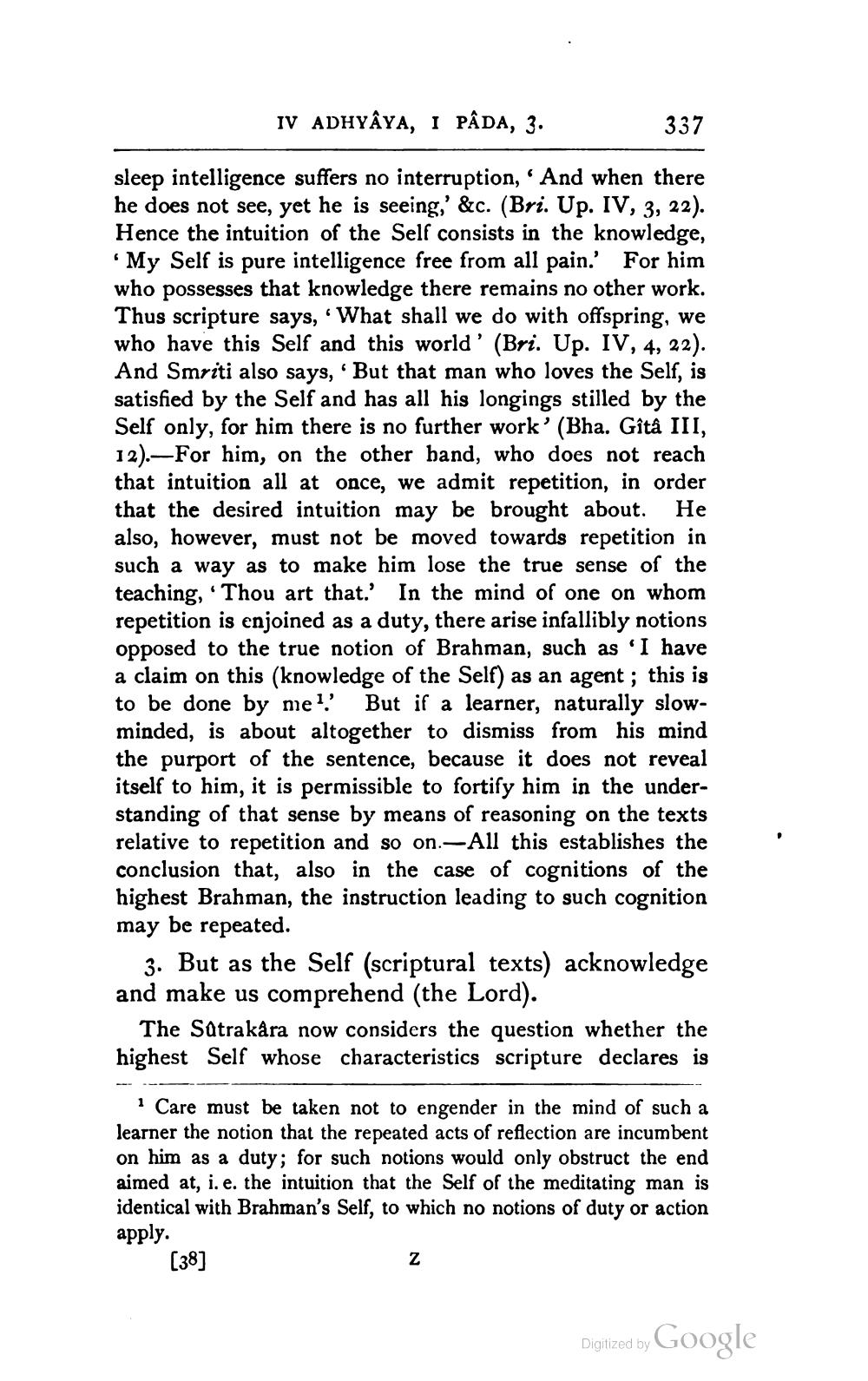________________
IV ADHYÂYA, I PÂDA, 3.
337
sleep intelligence suffers no interruption, ' And when there he does not see, yet he is seeing,' &c. (Bri. Up. IV, 3, 22). Hence the intuition of the Self consists in the knowledge,
My Self is pure intelligence free from all pain.' For him who possesses that knowledge there remains no other work. Thus scripture says, 'What shall we do with offspring, we who have this Self and this world' (Bri. Up. IV, 4, 22). And Smriti also says, 'But that man who loves the Self, is satisfied by the Self and has all his longings stilled by the Self only, for him there is no further work' (Bha. Gîtâ III, 12).–For him, on the other hand, who does not reach that intuition all at once, we admit repetition, in order that the desired intuition may be brought about. He also, however, must not be moved towards repetition in such a way as to make him lose the true sense of the teaching, 'Thou art that.' In the mind of one on whom repetition is enjoined as a duty, there arise infallibly notions opposed to the true notion of Brahman, such as 'I have a claim on this (knowledge of the Self) as an agent ; this is to be done by mel! But if a learner, naturally slowminded, is about altogether to dismiss from his mind the purport of the sentence, because it does not reveal itself to him, it is permissible to fortify him in the understanding of that sense by means of reasoning on the texts relative to repetition and so on.—All this establishes the conclusion that, also in the case of cognitions of the highest Brahman, the instruction leading to such cognition may be repeated.
3. But as the Self (scriptural texts) acknowledge and make us comprehend (the Lord).
The Satrakåra now considers the question whether the highest Self whose characteristics scripture declares is
Care must be taken not to engender in the mind of such a learner the notion that the repeated acts of reflection are incumbent on him as a duty; for such notions would only obstruct the end aimed at, i.e. the intuition that the Self of the meditating man is identical with Brahman's Self, to which no notions of duty or action apply.
[38]
Digitized by
Digilzed by Google




